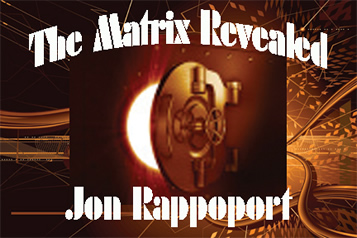THE FREE INDIVIDUAL
October 29, 2010. As society and government and media produce more turmoil and junk information, it’s easier to forget there are first principles. Well, most of the time, people can manage to forget first principles anyway. Who needs them? They just get in the way of a relatively smooth life, in which authentic thought plays a minor role.
One could say the prevailing philosophy is not to have a philosophy. However, as it turns out, this takes more effort than one might suppose. There is so much to forget, so much to ignore, so much to lay aside in a remote space in the cellar.
With the onset of a pseudo-philosophy called Pragmatism, designed for “the common man,” pundits declared they had found the key to America’s success. Its citizens had unburdened themselves of all the unnecessary mental clap-trap that legislated against pure action. Americans were stripped-down goal seekers.
Of course, emptying the mind meant the founding principles of the republic went begging. This was unfortunate collateral damage—but why worry about freedom when you were already acting on it, when you were already in the heat of the battle to bring the good life to fruition?
A specious argument—and we can see the results of it all around us.
So let us return to principle…
The free individual is moral in the sense that he chooses—as seen through his own eyes—the highest work possible. Therefore, he is not competing for a prize others seek. He isn’t scrabbling for a fake pearl. He isn’t contemplating crimes that will help him arrive at a destination before others can.
And this notion of “the highest work possible” doesn’t involve leaving one’s desire behind, in order to become the servant of a cause. One doesn’t suddenly develop an egoless and empty personality in order to “connect” with a goal that floats in a heavenly sector.
The psychology of the free individual is really no psychology at all. It doesn’t hang on levers of past events. It doesn’t depend on clandestine “negative motives.”
The free individual isn’t shaped. He shapes.
He doesn’t seek compromise. He doesn’t begin with the possibility of public acceptance and rationalize his actions back from that hoped-for outcome.
Meanwhile, the mob, the herd operates on debt, obligation, guilt, and the pretense of admiration. These are its currencies.
The mob, while it seeks some reflection of its unformed desire, struggles to reach a group consensus that will construct a social order based on need—and that need will be supplied, through coercion if necessary, by those who already have More.
This need, and the proposition that the mob deserves its satisfaction, creates a worldwide industry.
Among the industry’s most passionate and venal supporters are those who, a priori, are quite certain that the human being is a tainted vile creature. Such supporters, of course, are sensing their own reflections.
The great psychological factor in any life is THE DESERTION OF INDIVIDUAL FREEDOM. Afterwards, the individual creates shadows and monsters and fears around that crossroad. To vaporize them, he needs to choose his own freedom again. That’s the long and short of it.
Freedom is the space and the setting, from which the individual can generate the thought and the energy- pulse of a great self-chosen objective.
In that place, there is no crowding or oppressive necessity. There is choice. There is desire. There is thought.
This was the starting point of the American Revolution. It is still the starting point.
It doesn’t require consensus. It doesn’t require legislation or any other form of permission.
“Being absorbed in a greater whole” isn’t an ambition or philosophical prospect for the free individual. He sees that fixation as an abject surrender of self.
The Collective, whether envisioned as a down-to-earth or mystical group, promises a release from self. This grand solution to problems is a ruse designed to keep humans in a herd. After all, how are you going to control and eventually enslave people if you promote the notion that each individual has freedom and free choice? The abnegation of self is a workable tactic, as along as it is dressed up with false idols and perverted ideals.
The release from self is a fabrication. At bottom, it is choosing another role in the play, the drama. It is a character, called “non-self.” It can be fleshed out and outfitted in a number of ways.
Traditionally, non-self envisions apocalyptic events that will change everything and bring ultimate rewards and/or punishments. Non-self is wedded to “higher forces” because, since self has been rejected, there has to be a different causative principle.
Self is fundamentally creative, dynamic, forward-looking, energetic, powerful, engaged. The Collective looks for those qualities in the government as its source of survival. In turn, the government takes whatever it can from the free individual, to supply the needs of the Collective.
This arrangement is a diminishing vortex that, in time, approaches zero output, like an engine running out of fuel.
But the free individual goes on.
JON RAPPOPORT
